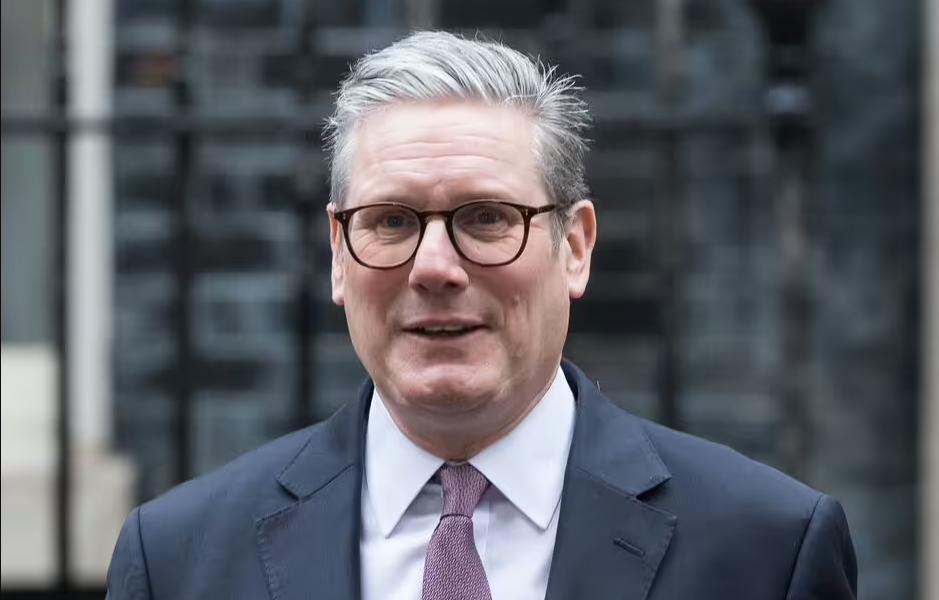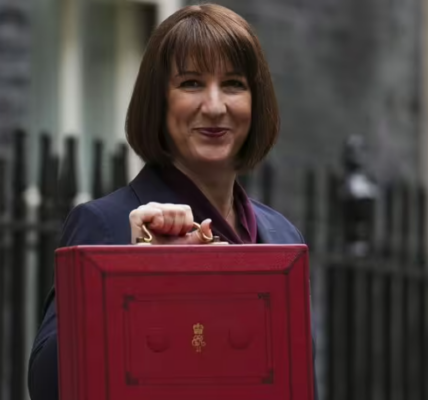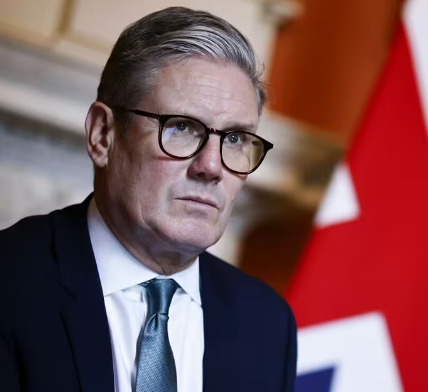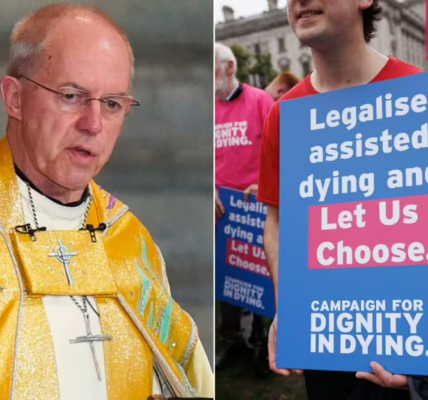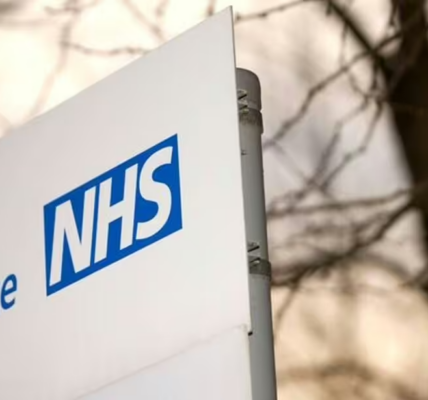Keir Starmer Under Fire! Shocking Asylum Figures Spark ‘Open Door’ Warning!
Critics demand Labour gets a grip as new research reveals the number of asylum seekers who could be granted leave to remain

Keir Starmer’s asylum policies have provoked more fury (Image: Getty)
More than 60,000 migrants will be granted asylum and allowed to stay in Britain after Sir Keir Starmer scrapped the Rwanda scheme, experts have revealed.
Based on grant rates in the year to June, the Refugee Council predicted that as many as 62,801 people could be recognised as refugees.
This is primarily down to the large number of Afghans, Syrians, Eritreans, Iranians and Sudanese people hoping to be granted leave to remain, said the migrant charity.
But critics condemned Sir Keir’s mooted bid to “throw open the doors” and warned it could lead to more Channel migrant arrivals.
Shadow Home Secretary James Cleverly said: “It comes as no surprise that Keir Starmer and the Labour Party have thrown the doors open instead of doing what is necessary to stop the dangerous crossings.
“The last Conservative government had flights ready to go to Rwanda. But Labour scrapped our deterrent on day one and are now reopening asylum hotels costing upwards of £4million every day – and breaking yet another promise they made to the British people. Meanwhile, they are cutting winter fuel payments to pay for their incompetence.
“Labour have shown time and time again that they have no plan. They need to get a grip and fast, otherwise the numbers will continue to climb.”

The first flight to Rwanda was grounded at the eleventh hour (Image: Getty)

The Channel migrant crisis has overwhelmed Britain’s asylum system (Image: Getty)
The Refugee Council’s chief policy analyst, Jon Featonby, said: “We’ve used the nationalities that are in the backlog on June 30, and using the initial decision grant rates for the year leading up to election, looked at applying those grant rates for each nationality to the number of people in the asylum backlog at that point.
“[It] worked out what where you might expect it to be, it comes out around 62,000 people out of that backlog could be granted refugee status.
“Now that obviously depends on quite a lot, looking forward in terms of the situations in some of those claims … but just applying the grant rates in the year up to the election, that’s where we come in.”
The Refugee Council said the number of asylum interviews reached a standstill in the month before the General Election.
In June, the Home Office carried out just 1,150 interviews – despite there being four times as many asylum caseworkers.
Before voters went to the polls, there were 118,882 waiting for an asylum decision.
This rose to 125,385 on July 16.
But the Refugee Council has predicted the Labour Government’s decision to scrap the Rwanda scheme and end the legal requirement to detain and deport illegal migrants will lead to the backlog starting “to come down in the coming months”.
The charity said: “Based on the grant rates at initial decision in the year to June 2024, over half of the people whose asylum claims can now be processed may be recognised as refugees (62,801).
“One in 10 of those who were waiting for an initial decision on June 30 were Afghan nationals, and a third of the people came from either Afghanistan, Iran, Syria, Eritrea or Sudan – all countries whose nationals have a very high likelihood of being recognised as a refugee.”
The Refugee Council, in a new report, predicted scrapping the Rwanda scheme has prevented the asylum backlog from spiralling to 177,063 by January.
Instead, it is forecasted to be around 119,000 at the start of next year.
The Conservatives, under Rishi Sunak, had pinned their hopes of reducing the asylum backlog on deportation flights to Rwanda.
And the previous government wanted to strike up more deals with countries across the globe to act as a deterrent to migrants crossing the Channel.
But the Rwanda flights were grounded by successive legal challenges.
After the Supreme Court ruled that the scheme was unlawful in November 2023, Mr Sunak’s government introduced emergency legislation to make clear in UK law that Rwanda is a safe country.
The Safety of Rwanda Bill – which was finally approved after intense political wrangling – ordered courts to ignore key sections of the Human Rights Act.
It also compelled the courts to disregard other British laws or international rules – such as the international Refugee Convention – which would block deportations to Rwanda.
The UK government also signed a new migration treaty with Rwanda, which Mr Cleverly said guarantees that anyone sent there would not risk being returned to their home country.
Other European nations were watching how the scheme worked, with the intention of then replicating them, sources have told the Daily Express.
While Sir Keir scrapped the deportation deal with Kigali, European leaders have pressed forward with plans to create and create migrant deportation camps.
Ursula von der Leyen, the President of the European Commission, said Brussels wants to create “return hubs” outside of the bloc.
Illegal migrants – particularly those with criminals – would be held in such centres before being sent home.
Ms von der Leyen said: “We should continue to explore possible ways forward as regards the idea of developing return hubs outside the EU, especially in view of a new legislative proposal on returns.”
On Tuesday, Albania’s prime minister said Tirana has turned down many requests from other European Union countries to take in thousands of asylum seekers.
The Refugee Council also warned of a growing backlog in asylum appeals.
And the charity’s chief executive, Enver Solomon, predicted the Home Office could be hoping to reduce the backlog within a year – similar to Mr Sunak’s goal to slash the legacy backlog.
He said: “On the current backlog, the best indicator is the time it took last time to clear 90,000. There was a significant proportion who were withdrawn.
“I think you can make an assumption that the Home Office is going to be working at an equivalent pace.
“Rishi Sunak gave himself 12 months to do that. But they were a few thousand short because there were 4,000 people they were still having to track down.”
A Home Office spokesman said: “This Government took quick action to restore order to the asylum system that we inherited by restarting asylum processing to clear the backlog.
“This is happening as we continue to remove more people with no right to be here – with over 3,000 people returned since we formed Government – while also driving down the costs of asylum accommodation to save money for the taxpayer.”
